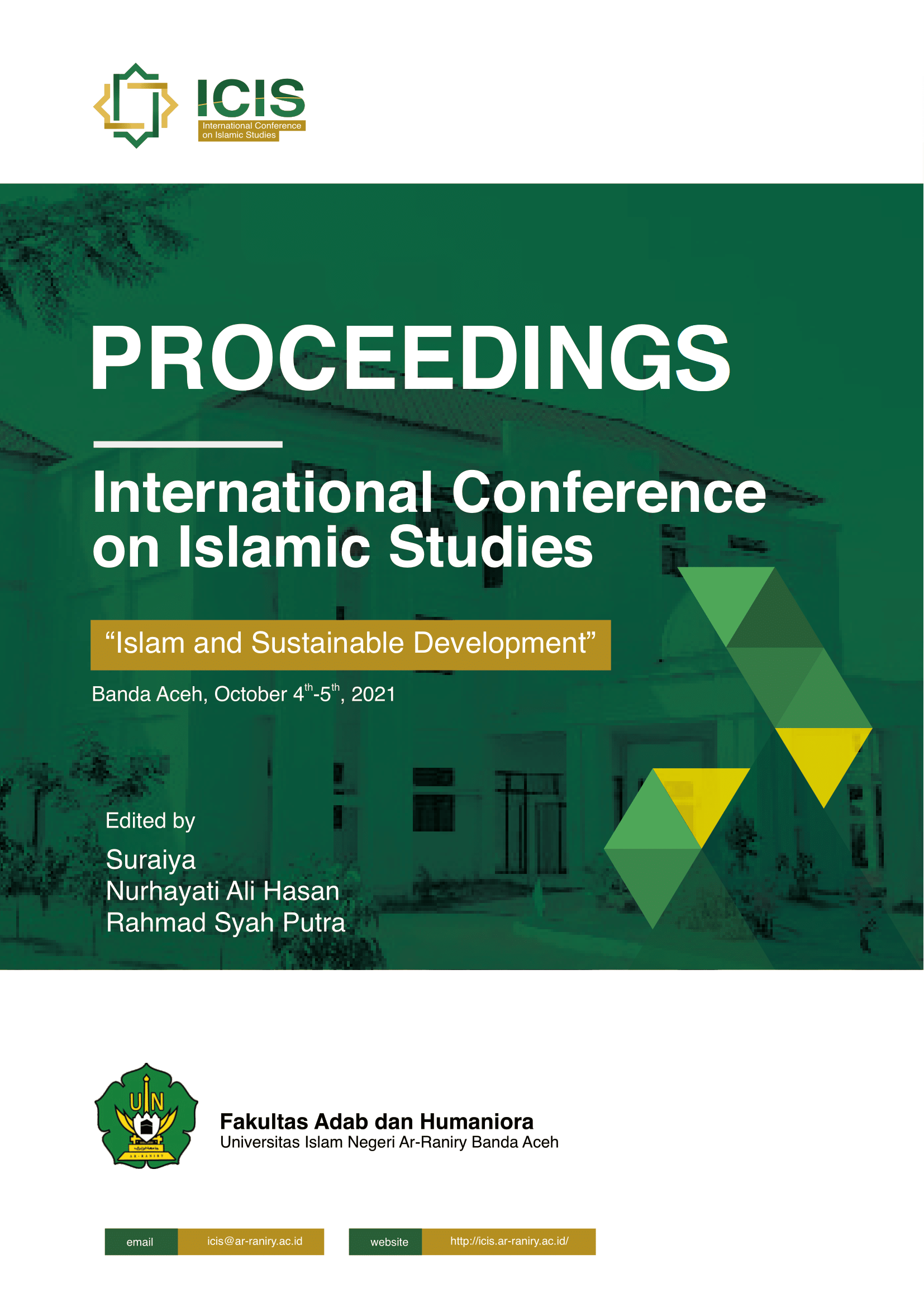THE ROLE OF BAITUL MAL IN EMPOWERMENT MUSTAHIQ ZAKAT WELFARE: THE STUDY OF BAITUL MAL KOTA LHOKSEUMAWE IN DISTRIBUTING ZAKAT PRODUKTIF
Abstract
Zakat is a potential source of funds that can be used to build the independence and welfare of the poor. In practice, there are still many mustahiq who consider zakat as a free gift and are not responsible for its distribution. Based on the initial survey, it was known that the distribution of zakat in Baitul Mal was still not in proper use, and was still less productive, so it was assumed as an institution that was less active in empowerment the economy of the poor (mustahiq). Seeing these problems, the authors are interested in knowing the role of the ’amil zakat institution, especially Baitul Mal Lhokseumawe in an effort to empower the mustahiq zakat economy through a study of strategies for optimizing the distribution of productive zakat in Lhokseumawe City. This study aimed to determine the role of Baitul Mal Lhokseumawe in improving and empowering the economy of mustahiq through optimizing the distribution of productive zakat. While the target of this activity was to increase the independence and economic welfare of the poor, through a study on the optimization in distribution practices of zakat produktif at Baitul Mal Lhokseumawe. To achieve these objectives, a descriptive qualitative approach was used with observation, interviews and documentation techniques. Meanwhile, data analysis was carried out through the methods of collection, reduction, display, and conclusion. As an amil zakat institution, Baitul Mal actively empowered the economy of the poor in Lhokseumawe City by always coordinatingwithBMGandimplementingtransparent,professionalandaccountablezakat management. In an effort to optimize the distribution of productive zakat, in addition to providing business capital in cash to micro and medium entrepreneurs which amount to 1 million and 4 million per year, respectively, the Baitul Mal also oftened provides guidance in terms of the utilization of zakat funds for mustahiq. However, in the process of distributing zakat, BMG oftened faces complaints and criticism from the public, especially in terms of mustahiq zakat and an amount of zakat.
Keywords:Role, Existence, Baitul Mal, Optimization, Distribution,andProductive Zakat
References
Anwar, A. T, “Zakat Produktif untuk Pemberdayaan Ekonomi Umat”. ZISWAF: Jurnal Zakat dan Wakaf, 5 (1), 41-62. 2018.
Al Arif, M. N. R, “Efek Pengganda Zakat Serta Implikasinya Terhadap Program Pengentasan Kemiskinan.” Jurnal Ekbisi Fakultas Syariah UIN Sunan Kalijaga Yogyakarta, 5 (1), 42-49. 2010.
Mukhlisin, “Pendistribusian Dana Zakat Untuk Pemberdayaan Ekonomi Masyarakat Pada Badan Amil Zakat Daerah (BAZDA) Kab. Karawang”, Skripsi, Jurusan Menejemen Dakwah Fakultas Dakwah dan Komunikasi UIN Syarif Hidayatullah Jakarta, 2009.
Hanifah, N, “Implementasi Zakat Sebagai Instrumen Pengentasan Kemiskinan di Badan Amil Zakat Nasional (BAZNAS) Banyuwangi.” Economic: Jurnal Ekonomi dan Hukum Islam, 8(2), 104-122, 2017.
Armiadi, Zakat Produktif: Solusi Alternatif Pemberdayaan Ekonomi Umat (Potret dan Praktek Baitul Mal Aceh), Cet. I, (Yogyakarta: Ar-Raniry Press Darussalam Banda Aceh & AK GROUP Yogyakarta, 2008.
Safitri, J. “Implementasi Konsep Zakat dalam Al-Qur’an Sebagai Upaya Mengentaskan Kemiskinan di Indonesia.” Mukaddimah: Jurnal Studi Islam, 2(1), 19-42, 2017.
Qhardhawi, Kiat Islam Mengentaskan Kemiskinan, Jakarta: Gema Insani Press, 1995.
Mubasyirun, “Distribusi Zakat dan Pemberdayaan Ekonomi Umat“ INFERENSI: Jurnal Penelitian Sosial Keagamaan, Vol.7 No.1 Desember 2013)
Saifuddin, “Optimalisasi Distribusi Dana Zakat: Upaya Distribusi Kekayaan (Studi terhadap UU No. 23 Tahun 2011 tentang Pengelolaan Zakat)” Jurnal Az Zarqa’, Vol. 5, No. 2, Desember 2013
Nopiardo, W. “Mekanisme Pengelolaan Zakat Produktif Pada Badan Amil Zakat Nasional Tanah Datar. Economica: Jurnal Ekonomi dan Bisnis Islam,” 1(2), 186-196. 2016.
Farhan Amymie, “Optimalisasi Pendistribusian dan Pendayagunaan Dana Zakat dalam Pelaksanaan Tujuan Program Pembangunan Berkelanjutan (SDGs)” Jurnal Anida (Aktualisasi Nuansa Ilmu Dakwah) Volume 17, Nomor 1, 2017, 1-18 Fakultas Dakwah dan Komunikasi, UIN SGD Bandung
Rachmat Hidajat, “Penerapan Manajemen Zakat Produktif dalam Meningkatkan Ekonomi Umat di Pkpu (Pos Keadilan Peduli Umat) Kota Makassar” Millah: Jurnal Studi Agama. ISSN: 2527-922X (p); 1412-0992 (e) Vol. XVII, no. 1 (2017), pp. 63-84, DOI: 10.20885
Nidityo, H. G., & Laila, N. “Zakat Produktif Untuk Meningkatkan Kinerja Produksi, Motivasi dan Religiusitas Mustahiq (Studi Kasus Pada BAZ Jatim).” Jurnal Ekonomi Syariah Teori & Terapan, 1(9), 661-673. http://dx.doi.org/10.20473/vol1iss20149pp%25p, 2014.
Lexy J. Moleong, Metodologi Penelitian Kualitatif, Bandung: Remaja Rosdakarya,2006.

